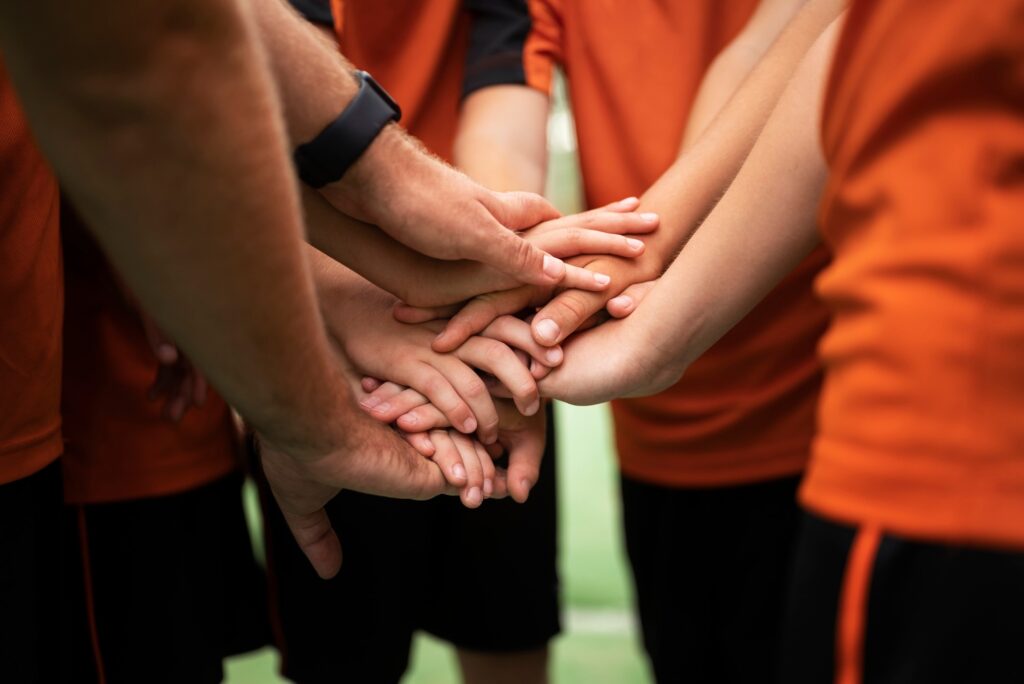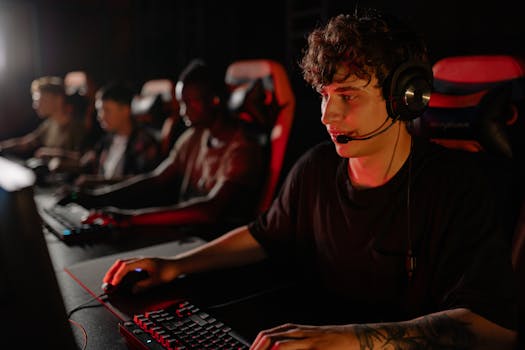Sports
Sports Games: Health, Inclusion and Well-Being in Brazilian Society
Sports games strengthen the body and mind. They promote inclusion, prevent disease, and encourage a healthy lifestyle, making them essential for more active and united communities.
Advertisement

You Sports Games occupy a central place in Brazilian culture. Far beyond competition, they offer benefits that impact physical health, mental well-being, and social interaction.
With the rise of sedentary lifestyles, chronic diseases, and stress, sports have become essential. Sports are an accessible, fun, and transformative way to improve quality of life.
The Value of Sports Games for Physical Health
Participating in sports is a pleasurable way to exercise. Unlike repetitive workouts, Sports Games make physical activity fun, stimulating and adaptable to different ages.
Regular exercise strengthens muscles, improves circulation, and maintains heart health. This combination significantly reduces the risk of obesity, hypertension, and diabetes.
In addition to improving physical health, sports increase physical endurance and teach discipline. Playing regularly helps the body adapt better to daily stresses and challenges.
Another benefit is increased self-esteem. Achieving athletic goals builds confidence and motivation, directly impacting work, studies, and other aspects of personal life.
Social Inclusion and Diversity in Sports Games
You Sports Games are also tools for inclusion. People of different ages, genders, or physical conditions can participate without barriers, fostering a more egalitarian social environment.
This diversity strengthens communities. In Brazil, a multicultural country, sport acts as a bridge to reduce inequalities and promote coexistence among different groups.
Furthermore, adapted sports activities offer true inclusion to people with disabilities. They promote health, socialization, and self-esteem, reinforcing the right to sport for all.
Community, school, and university games enhance this integration. Even without large structures, they provide opportunities for collective participation and strengthen social bonds.
Sports Games and Mental Health
If the body benefits, the mind also benefits. Practice Sports Games releases endorphins, a hormone associated with pleasure, helping to combat stress, anxiety and even depressive symptoms.
Sports interactions reduce social isolation. Friendships, partnerships, and support networks emerge naturally in sports environments, strengthening bonds and improving self-esteem.
Furthermore, sports teach us how to deal with frustration. Accepting defeats and learning from mistakes strengthens resilience, emotional maturity, and the ability to overcome challenges off the court.
Leisure time with sports acts as an escape valve. Playing, laughing, and interacting make the day lighter and more balanced, positively impacting overall well-being.
Skills Development and Team Spirit
You Sports Games They are also learning spaces. Values such as respect, discipline, and cooperation are transmitted in a practical way during each training session or competition.
These lessons are useful in the professional environment. Knowing how to work as a team, communicate clearly, and take responsibility are skills developed in sports and applicable in adult life.
For children and young people, the benefits are even greater. Playing sports helps build leadership, discipline, and collective awareness.
Thus, sports are consolidating their position as an educational tool. They combine leisure and learning, developing citizens better prepared to live in a community.
The Role of Sporting Events in the Community
Sporting events strengthen communities and cities.
Small local tournaments or large national championships have a direct impact on social interaction and the feeling of collective belonging.
Restaurants, hotels and businesses profit from the increase in visitors, showing that Sports Games also generate economic development.
Beyond the financial aspect, these events encourage public leisure and health policies. Sports facilities, squares, and community centers are created or revitalized to serve the population.
Therefore, each championship goes beyond competition. It strengthens social bonds, encourages healthy practices, and contributes to urban development.
Chronic Disease Prevention
A sedentary lifestyle is one of the biggest public health challenges. Combined with poor nutrition, it increases the risk of obesity, hypertension, diabetes, and cardiovascular problems.
You Sports Games are an affordable and enjoyable solution. By encouraging regular physical activity, they prevent chronic diseases and increase longevity.
Studies show that athletes have a better quality of life. In addition to improved physical health, they feel more energetic, active, and confident in facing daily challenges.
Therefore, investing in sports is investing in public health. It reduces medical costs, improves population indicators, and contributes to a healthier country.
Sports Games and Sustainable Lifestyle
Sports practice goes beyond the game itself. It creates healthy habits that last a lifetime, impacting daily choices.
People who play sports tend to eat better, sleep properly, and take better care of their bodies. The multiplier effect transforms sports into a lifestyle.
This healthy cycle inspires families and communities. Children see examples at home, young people follow the practice, and adults maintain vitality.
All of this reinforces the power of Sports Games.
🏆 Motivation and Personal Improvement in Sports Games
You Sports Games inspire overcoming. Each victory achieved or goal attained strengthens personal motivation, demonstrating that continuous effort generates positive results.
This sense of achievement boosts self-confidence. Even in defeat, lessons learned help shape resilience and determination, qualities applicable both inside and outside of sport.
Stories from amateur and professional athletes reinforce this impact.
They show that dedication and discipline can transform challenges into achievements, motivating others to also play sports.
Why Support Sports Games?
You Sports Games They're not just competitions. They're instruments of social, emotional, and physical transformation, fundamental to the quality of life in Brazil.
Supporting sports initiatives means investing in health, inclusion, and integration. Every match played represents a step towards a more balanced society. Promoting Sports Games guarantees opportunities for all. It's an effective way to strengthen communities and create a healthier, more active, and united country.





